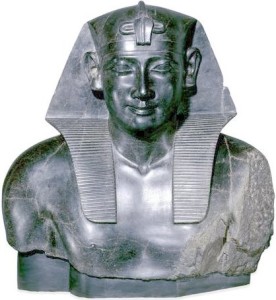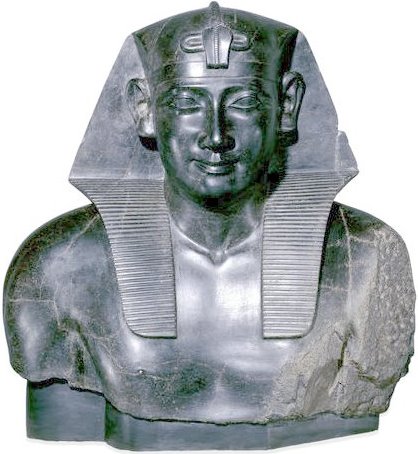 In 301 B.C.E., after the death of Alexander and the division of his empire, Ptolemy I Soter, who had ruled over Egypt since 323 B.C.E., conquered Palestine. According to Josephus, this was the origin of the substantial community of Hellenized Jews in Egypt.
In 301 B.C.E., after the death of Alexander and the division of his empire, Ptolemy I Soter, who had ruled over Egypt since 323 B.C.E., conquered Palestine. According to Josephus, this was the origin of the substantial community of Hellenized Jews in Egypt.
(1) Now when Alexander, king of Macedon, had put an end to the dominion of the Persians and had settled the affairs of Judea in the manner described above, he died. 42 (2) His government fell among many- Antigonus obtained Asia, Seleucus Babylon, and of the other nations which were there, Lysimachus governed the Hellespont, and Cassander possessed Macedonia; and Ptolemy, the son of Lagus, seized Egypt. (3) While these
princes ambitiously strove one against the other, every one for his own principality, it came to pass that there were continual and prolonged wars. The cities were the sufferers and lost a great many of their inhabitants in these times of distress, so that all Syria because of Ptolemy, the son of Lagus, underwent the reverse of his name, for he was called Soter (Savior). (4) He also seized Jerusalem and for that purpose made use of deceit and treachery. For he came into the city on a Sabbath day, as if he would offer a sacrifice, and, without any trouble, gained the city; for the Jews did not oppose him as they did not suspect him to be their enemy. He gained it thus because they were free from suspicion of him, and because on that day they were at rest and idle. When he had gained it, he reigned over it in a cruel manner. (5) Indeed, Agatharchides of Cnidus, 43 who wrote the acts of Alexander’s successors, reproaches us with superstition, as if because of it, we had lost our liberty, when he says thus- (6) “There is a nation called the nation of the Jews who inhabit a city strong and great, named Jerusalem. These men let it come into the hands of Ptolemy by their unwillingness to take arms; they thereby submitted to be under a hard master because of their untimely superstition.” (7) This is what Agatharchides relates of our nation.
But when Ptolemy had taken a great many captives, both from the mountainous parts of Judea and from the places around Jerusalem and Samaria, and the places near Mount Gerizim, he led them all into Egypt and settled them there. (8) Since he knew that the people of Jerusalem were most faithful in the keeping of oaths and covenants, as shown by the answer they gave to Alexander when he sent an embassy to them after he had beaten Darius in battle, he distributed many of them into garrisons. At Alexandria he gave them equal privileges as citizens with the Macedonians themselves, and he required them to take oaths that they would keep faith with the posterity of those who committed these places to their care. (9) Indeed, there were not a few other Jews who, of their own accord, came to Egypt, attracted by the goodness of the soil, and by the liberality of Ptolemy.
42. In Babylon in June, 323 B.C.E.
43. Lived ca. 215 to after 145 B.C.E., Greek historian and geographer whose works are preserved only in fragmentary form. One of his books is Asian Affairs which includes the period of the Diadochi, the successors of Alexander the Great.
